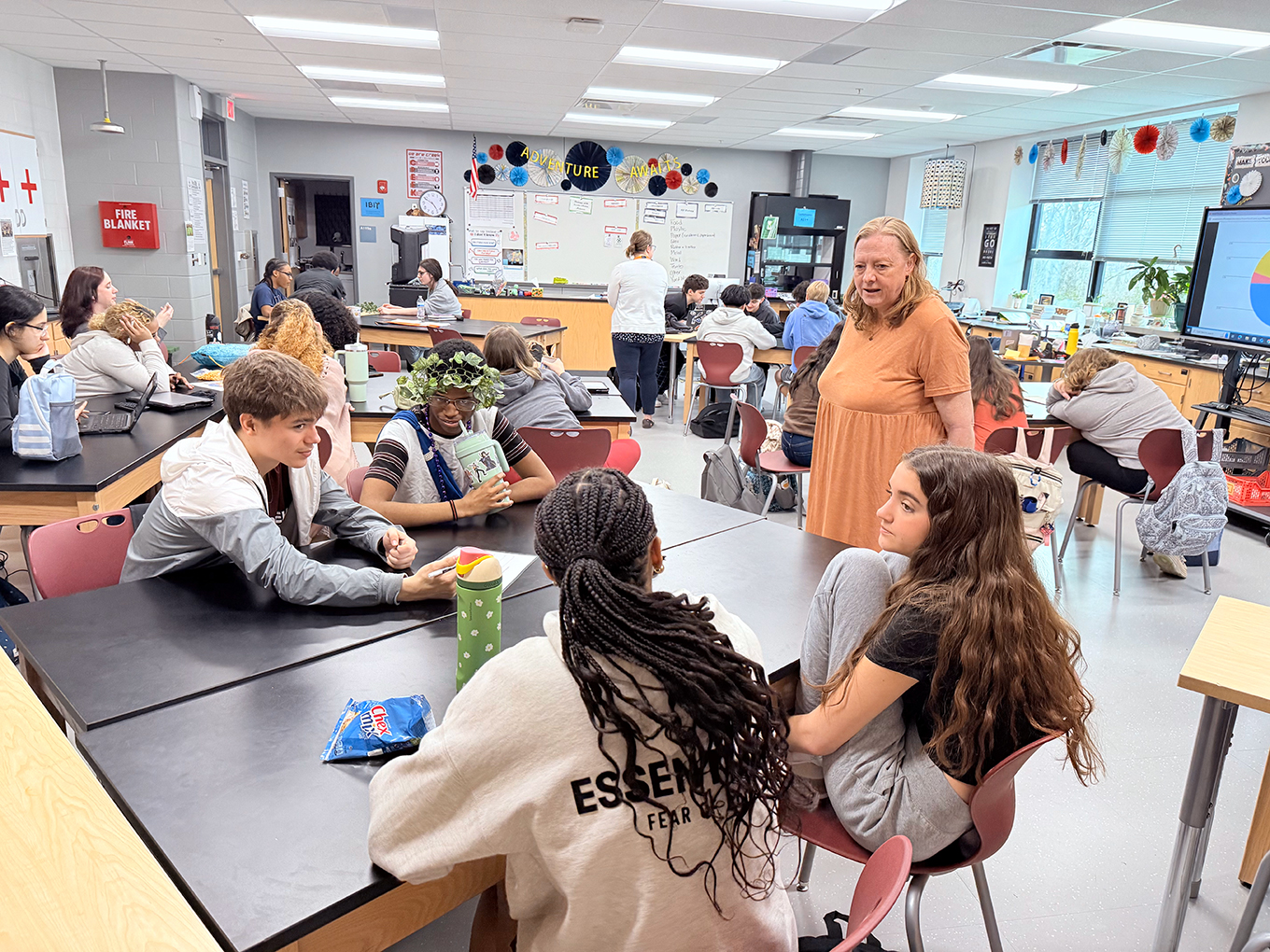
Allison Stacy
I started teaching right out of college and was only 22 years- old. Reflecting on my 22-year-old first-year-teacher self always makes me cringe slightly, but that version of me is where this story begins.
I worked one or two days a week at a consignment shop for my first three years teaching, until I became pregnant with my first son and I decided one job was exhausting enough. While working at the consignment shop, I was spending almost every Sunday grading papers and making lessons for at least 3-4 hours, but sometimes the whole day. One of my biggest regrets is the memory of someone giving Bengals tickets to my husband and me having to tell him that I could not attend because I had so many papers to grade.
Now, as a seasoned teacher of nine years, I have a much better work-life balance and never work on schoolwork on the weekends anymore. Although there are plenty of horror stories out there about extra hours spent at school and the unpaid overtime teachers put in, I can honestly tell you that it does not have to be that way. Through varied instructional methods, effective lesson planning and accurate prioritization, teachers can maximize their time during the school day and school week so weekends can be spent (as they should be) with friends and family.
The following are some pragmatic bits of advice I would give to any teacher – new or experienced – struggling with work-life balance.
- Exit Tickets are not always the right ticket.
What do I mean by this? My first few years teaching high school Spanish, I felt like I needed to give some sort of “written” assignment every day. I felt this way for several different reasons, from holding students accountable to formative assessments to making sure I had “enough” grades in my gradebook. With 150 students across daily periods, that led to an insurmountable amount of paperwork weekly. No matter how hard I worked on my planning period, I could never catch up on grading.
Then, something happened. A parent called the school and complained about me. I know – you’re probably rolling your eyes because you’ve been there. The parent said my class was too hard, her straight-A kid had a C, and it was just too much work and worksheets. Was the parent right? Absolutely not, but it did make me insecure enough that I questioned my teaching methods and changed things up.
Now, instead of giving five written assignments per week, I only give two. The other days I have found formative assessments that are just as effective as exit tickets, but they don’t leave a paper trail. These include using whiteboards to ask students questions (there are even virtual whiteboards for this school year) and playing games that assess the students and send me results (my favorites are Quizizz, Kahoot and Quizlet).
Since we’re using Google Classroom, I love to have the students leave a comment or say one thing in the chat instead of always giving a paper exit slip. This still allows me to see where my students are, but frees up my time so that I don’t have a giant stack of papers every week. Which leads me to my next piece of advice …
- Plan lessons with and without written assignments.
What do I mean by this? If during Monday’s lesson students learn a new topic and complete an exit slip, then on Tuesday use whiteboards to ask questions and practice the topic but do not collect any written work. Then on Wednesday, you can plan to collect another written assignment of some sort. On Thursday, maybe you play digital games and have digital data but do not have a stack of papers to grade.
By varying what the students are physically doing each day, you limit the amount of paperwork accumulating for you to grade. This is done while maintaining data collection through varied formative assessments and programs that automatically collect data for you about student learning and achievement.
Some of my favorite websites that automatically collect student data and provide me with a report about who has mastered a topic and who needs help still are Kahoot!, Quizizz and Quizlet. These websites have paid and free versions; I’m cheap so I stick with free and still find tons of useful resources and formative assessments to use in my classroom. Planning lessons with varied “products” allows me to prioritize my life appropriately – see my final point …
- The papers will always be there waiting to be graded, but your son’s soccer game will not always be available to watch.
I see so many teachers giving up their own personal time and money for the benefit of their students. While this is a very selfless act that can benefit our students through great lessons and great relationships, it is important to not put your own family and friends on the back burner in order to grade papers and work on lessons.
I try to work as hard as I possibly can while physically at school so I do not have to take work home on evenings and weekends. I avoid time-wasters like social media, teacher gossip about difficult students and my cell phone while at work as much as I can (we are all human, but I don’t make these things a habit). It’s not that my family is more important to me than my students, it’s that each of them has the appropriate time in my life, and I don’t let one take away from the other.
Now that I am nine years into my teaching career, I feel I have the work-life balance mainly mastered. I continue to seek out ways to make my lesson planning, formative assessments and grading more efficient, and am always astounded with what I can find. As a teacher, you never stop learning.
Allison Stacy has been teaching Spanish in the Kenton County School district for eight years. She attended Western Kentucky University for her undergraduate studies and majored in Spanish with a focus in education. She live and work in Northern Kentucky, near the Ohio border. Stacy is married and has two little boys, ages 2 and 4. She is serving as a GoTeachKY ambassador this year.




Leave A Comment